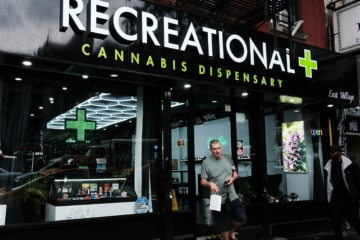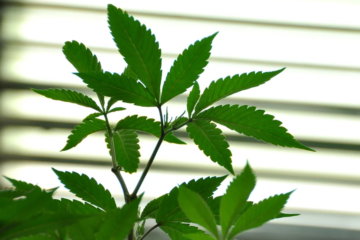Imagine lighting up a joint and suddenly wanting fewer beers. That’s the surprising twist from a fresh Brown University study that could change how we think about cutting back on booze.
Researchers found that smoking marijuana led to a big drop in alcohol intake right away. This federally funded work dives into the “California sober” trend, where folks swap alcohol for cannabis. But does it really work long-term? Stick around as we unpack the details, risks, and what it means for everyday people battling heavy drinking.
The Experiment That Shook Up Drinking Habits
Brown University scientists set up a fake bar in their lab to test if marijuana affects how much people drink. They picked 157 adults who often used both cannabis and alcohol heavily, at least twice a week. These folks smoked joints with different THC levels or a placebo, then hung out in the bar-like space with access to drinks.
The results hit hard. People drank much less alcohol after smoking real marijuana compared to the fake stuff. On average, their booze intake dropped by about 30% in those short sessions. This happened fast, within hours of puffing.
Why the change? Experts think THC, the main buzz-giving part of marijuana, might curb cravings for alcohol. It could tweak brain signals that make us reach for a drink. The study, published this week in the American Journal of Psychiatry, marks the first controlled trial of its kind.
But not everyone reacted the same. In some cases, a few participants actually drank more. This shows personal differences play a big role, like someone’s history with substances or even their mood that day.
The setup was strict. Sessions lasted a few hours, with researchers watching every sip and puff. This controlled vibe helped spot clear patterns, but it also raises questions about real-life partying.

Behind the “California Sober” Buzz
The term “California sober” popped up in recent years, pushed by celebs and influencers ditching hard drugs and booze but keeping cannabis. It’s not total sobriety, but a middle ground that feels doable for many.
This study backs it up somewhat. Lead researcher Jane Metrik from Brown noted that under lab conditions, cannabis cut alcohol use short-term. Yet she warned it’s too soon to call it a safe swap, especially for those with serious drinking issues.
Federally funded through grants, the research aimed to fill gaps in how these substances mix. Past surveys hinted at links, like a 2018 study from Brown showing college kids who used marijuana had more alcohol troubles over time. But this new work flips that by looking at direct cause and effect.
Think about the numbers. Heavy drinkers in the U.S. number in the millions, with alcohol linked to over 140,000 deaths yearly, per the CDC. If marijuana helps even some dial it back, that could save lives. Still, swapping one habit for another isn’t risk-free.
Experts stress balance. Cannabis has its own downsides, like dependency or impaired driving. The study didn’t track long-term effects, leaving a curiosity gap: Does this hold up over weeks or months?
Real-World Impacts and Warnings
So, how might this affect you? If you’re trying to drink less, the findings suggest marijuana could help in the moment. Picture a night out: A joint beforehand might mean skipping that extra cocktail.
But hold on. The researchers made it clear this isn’t a green light for everyone. For folks with alcohol use disorder, professional help like therapy or meds is still key. Metrik pointed out that while drinking dipped in the lab, real-world settings with friends and stress could change things.
Let’s break down some key pros and cons from the study:
- Short-term win: Lower alcohol intake right after smoking.
- Individual twists: Works for most, but boosts drinking in a small group.
- Health angle: Could cut alcohol harms like liver damage, but watch for cannabis side effects.
One fresh angle? This ties into broader shifts. With marijuana legal in more states, people are experimenting with it as a tool for healthier habits. A poll from earlier this year showed over half of cannabis users drink less or quit booze altogether.
Data from other spots adds context. A 2017 study found beer and wine sales dropped 15% in counties where marijuana went legal. It’s like the market feels the shift too.
Experts like those from the National Institute on Drug Abuse urge caution. They funded part of this work to understand interactions better, not promote use.
Digging Deeper into the Science
The team rolled joints with set THC doses: low, medium, or none. Participants, mostly meeting criteria for cannabis use disorder and many for alcohol too, visited the lab multiple times.
Here’s a quick look at the setup in a simple table:
| THC Level | Average Drinks Consumed | Drop Compared to Placebo |
|---|---|---|
| None (Placebo) | 5-6 | N/A |
| Low | 4-5 | 20% |
| Medium | 3-4 | 30-40% |
This table shows the pattern: More THC meant less drinking. Sessions mimicked social drinking, with music and chats, making it feel real.
Yet limitations loom. The group was specific, heavy users, so results might not apply to casual drinkers. Plus, the study focused on smoking, not edibles or vapes, which could differ.
A counterintuitive find? While alcohol dipped, some felt hungrier or sleepier, side effects that could sway daily life. This adds a layer of reality to the hype.
Spreading this out, think about policy. As states loosen cannabis laws, studies like this could shape guidelines on mixing substances. It might even spark new treatments for addiction.
This Brown University breakthrough shines a light on how marijuana might help tame alcohol habits, at least briefly. It’s a hopeful note for those seeking change, surprising skeptics who see cannabis as just another vice. But with warnings ringing loud, it’s clear one size doesn’t fit all.




